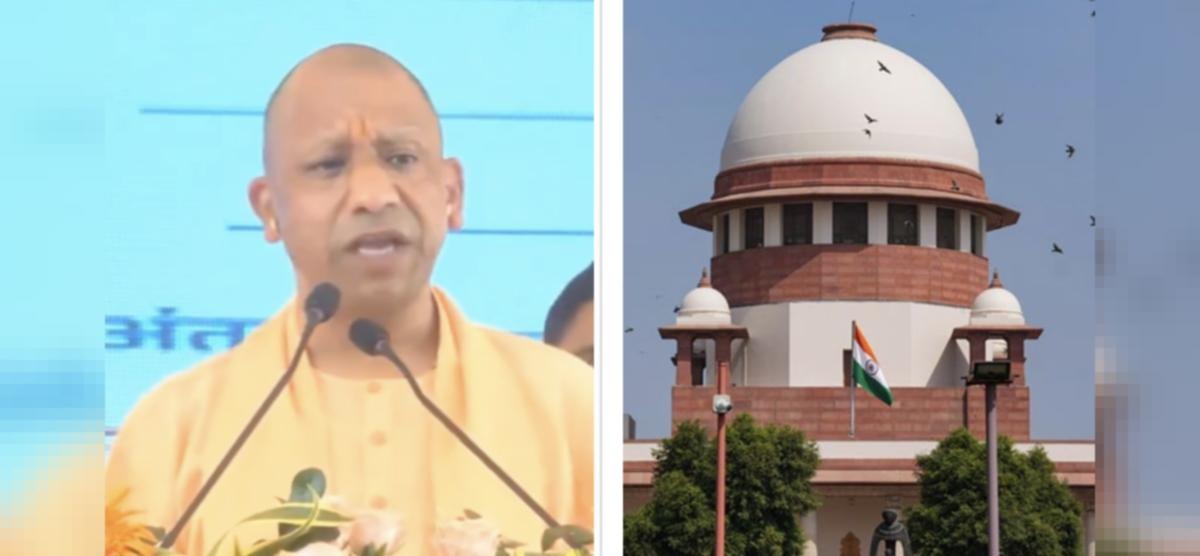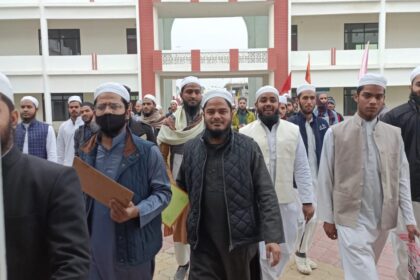Supreme Court Slams UP Government, Orders INR 25 Lakh Compensation for Bulldozed Homes
EC News Desk
06/11/2024
In a notable intervention, the Supreme Court of India reprimanded the Uttar Pradesh (UP) government for its bulldozer actions targeting residences without following due legal procedures. This admonition came during a hearing regarding property demolitions in Maharajganj district, where several homes were demolished as part of a road-widening project. The case, brought forward by advocate Manoj Tibrewal Aakash, raised significant questions about procedural compliance and respect for citizens’ rights.
Background of the Case
The conflict revolves around the UP government’s decision to demolish several homes allegedly encroaching on government land. The government claims that the demolitions were necessary for infrastructural development, specifically road expansion. However, the affected individuals argue that the demolitions were conducted without proper notification or opportunity for a fair hearing. This has led to widespread accusations of government overreach and arbitrary action.
Supreme Court’s Observations
Chief Justice of India (CJI) D.Y. Chandrachud strongly questioned the UP government’s methods, demanding that a compensation of INR 25 lakh be provided to those whose homes were destroyed. The CJI expressed concerns about the manner in which the state administration proceeded with the demolitions, suggesting it reflected “anarchy.” He emphasized that evicting people and bulldozing homes without due notice is a clear violation of legal norms and procedures.
Justice J.B. Pardiwala also voiced strong disapproval, highlighting the lack of documentation to substantiate the government’s claims of unauthorized encroachments. He questioned the rationale behind demolishing structures without any proper legal foundation or historical verification, suggesting that the administration’s approach appeared overly authoritarian.
The Debate on State Authority and Citizen Rights
This case has spotlighted a broader issue about the balance between government authority and citizens’ rights. While the state reserves the power to remove illegal encroachments for public projects, the Supreme Court’s reaction underscores the importance of following lawful procedures and safeguarding citizens’ rights. Arbitrary demolitions, without notification or fair opportunity for residents to present their case, violate principles of justice and accountability.
In this instance, the UP government claimed that the demolished structures were unauthorized encroachments. However, the absence of clear evidence, as well as procedural missteps such as failing to issue notices, raises questions about whether due process was followed. Such actions, if unchecked, risk setting a dangerous precedent where administrative decisions can override citizens’ basic rights.
Legal Implications and Future Course
The Supreme Court’s stance could have far-reaching implications. By advocating punitive compensation, the court sends a message about the consequences of bypassing procedural safeguards. The UP government might face similar challenges in future cases if it continues with its bulldozer policy without ensuring transparency and accountability.
Furthermore, this case calls attention to the need for legal reforms in how governments address unauthorized constructions. A more structured approach that includes prior notice, hearings, and the possibility of appeals would prevent the need for judicial intervention. Ensuring compliance with these safeguards is not only a matter of law but also of respect for the dignity and rights of individuals affected by government projects.
The Supreme Court’s rebuke to the UP government is a reminder of the judiciary’s role in upholding constitutional values and protecting citizens’ rights. While development projects are crucial for public benefit, they must not come at the expense of lawful procedure and accountability. This case could lead to a more cautious approach in future government actions involving property demolitions, ensuring that the rule of law remains central to the governance process.














